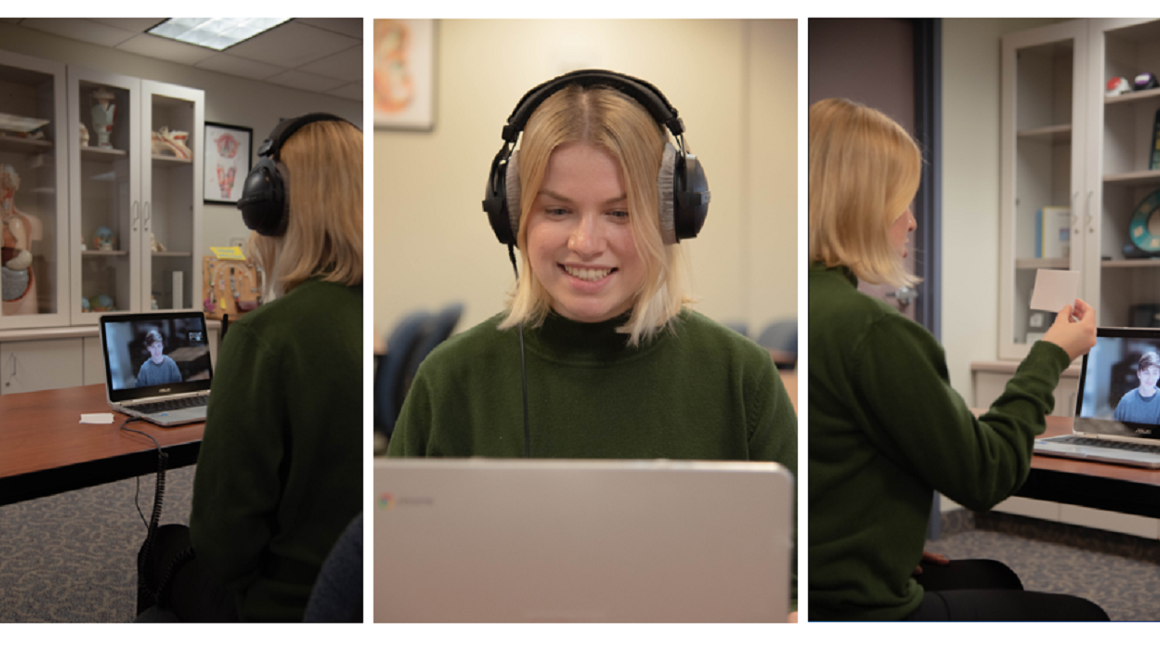Incorporating the missions of Duquesne University and the John G. Rangos Sr. School of Health Sciences, the Department of Speech-Language Pathology has adopted the following Mission Statement, Vision Statement, and Goals.
Mission, Vision, Promise Statement
Our Mission Statement
Our Vision Statement
Continuing to embrace diversity and equity, we commit to being a culturally competent and supportive faculty, staff, and student body. We seek to promote the scholarly and clinical presence of the department in the life of the University and communities-at-large.
Our Promise Statement
Goals and Actions
Students will become highly qualified clinicians dedicated to inclusion and collaboration.
Action 1: The SLP Department will review and revise the academic coursework and clinical experiences to help students reach their career goals while emphasizing life-long learning and the highest moral and ethical competencies.
Action 2: The SLP Department will provide students with opportunities to learn about and deliver services to diverse and/or underserved populations.
Action 3: The SLP Department will provide opportunities for students to engage in interprofessional practice and collaboration. This will prepare them to effectively serve as strong team members, deliver services that will promote the best possible outcomes for individuals with communication and swallowing disorders and their family members/caregivers, and respond to the changing landscape of our discipline and profession.
The SLP Department commits to working as allies and advocates of anti-racism, social justice, diversity, inclusion, and equity within SLP academic and clinical education, scholarship, service, and every aspect of work.
Action 1: The SLP Department will communicate our programmatic commitment and ongoing efforts toward anti-racism, social justice, diversity, inclusion, and equity to the broader Duquesne community through various forms of communication.
Action 2: The SLP Department will identify, promote, and participate in campus and community education and enrichment opportunities for faculty and staff to learn about issues pertaining to anti-racism, social justice, diversity, inclusion and equity including, but not limited to the Duquesne University Day of Listening and Speaking Out Against Racial Injustice.
Action 3: The SLP Department will incorporate resources, literature, and other materials produced by marginalized individuals across all environments (academic, clinical, community).
Action 4: The SLP Department will invite speakers and guest lecturers from marginalized backgrounds to lead and participate in department sponsored events.
Action 5: The SLP Department will engage in outreach to community members who are from diverse and underserved populations and provide resources for participation in all forms of clinical services including those that involve technology, including but not limited to telepractice.
The SLP Department will deliver a robust curriculum that incorporates evidence-based practices and technology and meets the needs of constituents from diverse backgrounds.
Action 1: The SLP Department will identify barriers and facilitators to participation in educational and clinical experiences that involve technology and other cutting edge tools and approaches.
Action 2: The SLP Department will address barriers and take steps to mitigate barriers to students' and clients' participation in educational and clinical services that involve technology.
Action 3: The SLP Department will continuously review and update its academic and clinical education curricula with a focus on ensuring the infusion of contemporary content and evidence-based educational and clinical techniques.


